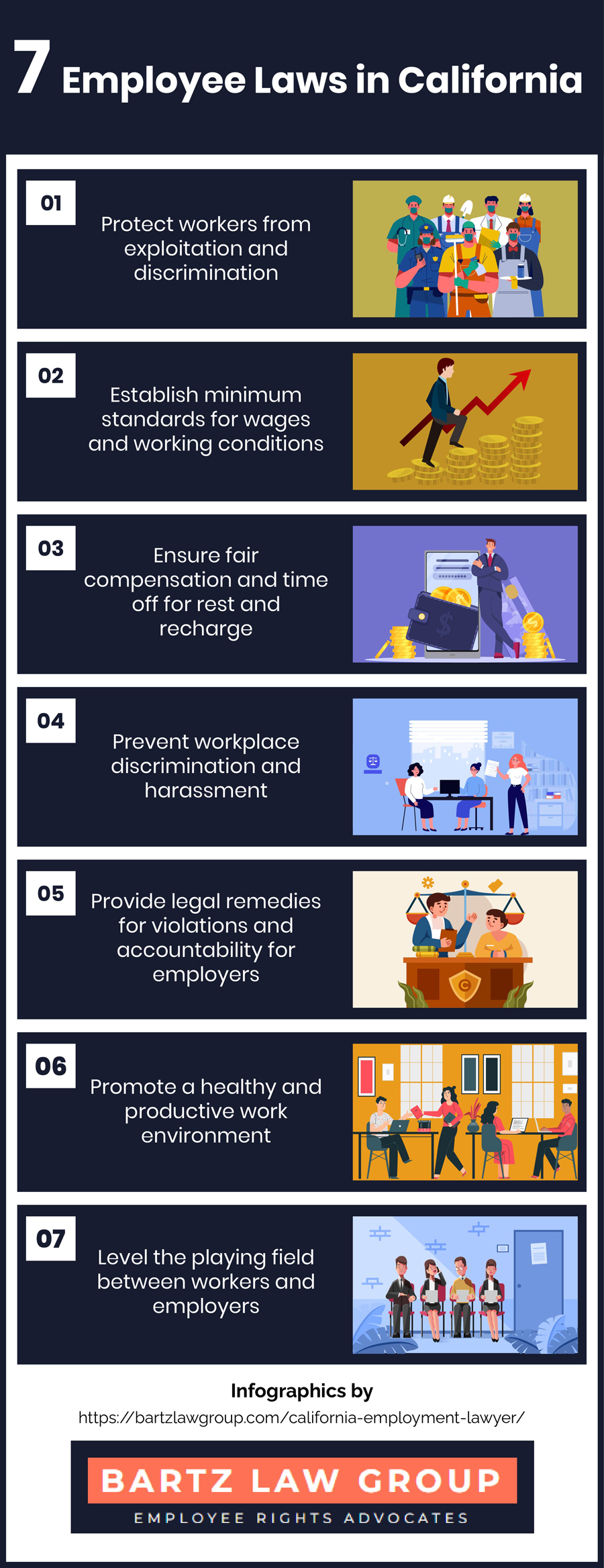
Employee laws in California are crucial for ensuring that workers are protected from various forms of exploitation and discrimination in the workplace. These laws establish minimum standards for wages, working conditions, and employee rights that employers must uphold throughout the state. Some key employee laws in California include the minimum wage, overtime pay, meal, and rest breaks, anti-discrimination and harassment laws, workers’ compensation, and family and medical leave.
These laws are important for several reasons. First, they help ensure workers are fairly compensated for their time and effort and have adequate time off to rest and recharge. This can lead to increased job satisfaction and improved mental and physical health for employees.
Additionally, these laws help to prevent discrimination and harassment in the workplace, which can have significant negative effects on employees’ well-being and productivity.
Furthermore, employee laws in California help to level the playing field between workers and employers, especially when workers may have little bargaining power or leverage. These laws help ensure employers are held accountable for violations and that employees can seek legal remedies if necessary.
Overall, employee laws in California play a vital role in promoting fairness, equity, and safety in the workplace. They help protect workers from abuse and exploitation and promote a healthy and productive work environment.
